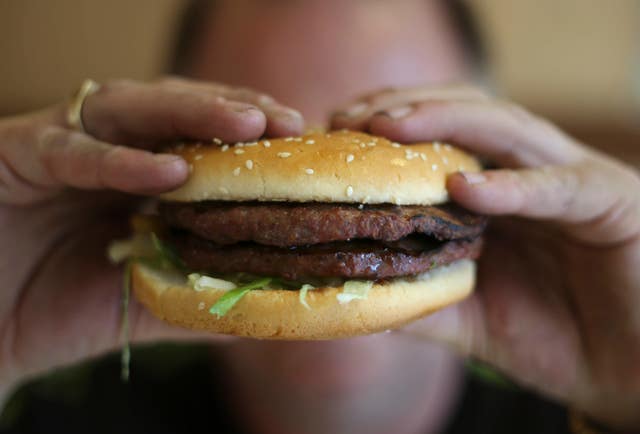Restrictions on shop junk food displays come into effect
Unhealthy products can no longer be displayed in prominent locations such as entrances and tills from October 1.

Restrictions on where shops in England can display junk food come into effect this weekend, despite concerns that Liz Truss was planning to row back on the plans.
The Department for Health and Social Care (DHSC) confirmed this week that a ban on displaying products high in fat, salt and sugar (HFSS) in prominent locations such as shop entrances and till areas will come into force on October 1.
The Government also confirmed it is delaying a ban on multibuy deals on HFSS foods, such as “buy one, get one free”, until October next year in response to consumers facing cost-of-living pressures.
There has been no confirmation over plans for a crackdown on junk food advertising, which had also been delayed for a year.
It emerged earlier this month that the Government was reviewing its anti-obesity strategy, with reports that plans to tackle junk food could be scrapped by Prime Minister Ms Truss amid fears it would increase pressure on consumers already struggling with soaring costs.

“Our industry looks forward to continuing to work with Government to help tackle obesity and poor diets. Food and drink businesses know we play a critical role in this, and we have worked hard over many years to redevelop the recipes of our products to make them healthier while retaining their delicious flavours. This has included work to help people choose appropriate portion sizes.
“We know how valuable good health is to everyone, and we’re committed to continuing with this and other work to help people eat well whatever their lifestyle.”
Association of Convenience Stores chief executive James Lowman said: “Local shops have sunk huge sums of money in refitting their stores to comply with these regulations when their businesses are already under pressure from rising energy bills and increased products costs.
“Retailers have been frustrated by the Government’s rushed approached to policy development and indecision about implementation dates.”
Health campaigners said they hope companies will use the year’s delay “responsibly” to develop a healthier food offering.
Barbara Crowther, co-ordinator of the Children’s Food Campaign, said: “We remain disappointed that the Government has now delayed the junk food multibuy restrictions by 12 months, given they result in people spending 22% more, not less, on impulse bulk purchases of less healthy foods and drinks.
“We hope that companies will now use this extra time responsibly to focus their price offers around healthier foods, which would be the best way of supporting families to access healthy food in this cost-of-living crisis.
“We welcome the fact that legislation to remove the bombardment of junk food promotions in shop entrances and till areas is still coming into force on Saturday October 1 as planned. These rules create a level playing ground for all larger shops and food brands to shift the promotional spotlight to healthier products, making it easier for us all to shop healthy.”
Mark Jones, partner and food and drink supply chain expert at law firm Gordons, said: “Liz Truss recently raised the possibility of scrapping the anti-obesity strategy but the phase one restrictions are going ahead and retailers need to be sure that they display HFSS foods in store or online in line with the new regulations.
“The fact remains that 28% of adults in England are obese and a further 36% are overweight. Childhood obesity rates in England soared during the pandemic reaching an all-time high. Some 28% of children are now overweight and 41% of 10 to 11-year-olds are overweight, which doesn’t bode well for the future.
“Obesity currently costs the taxpayer more than the police, fire service and judicial system combined. The new Government may be concerned that HFSS are unnecessary regulations, but something needs to be done to tackle rising obesity rates. More short termism won’t make people thin.”





